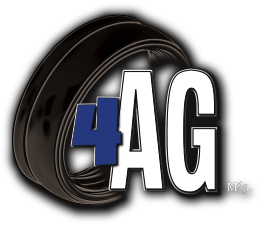Maximize Harvests: Planter Adjustment Tips & Tricks for You
It's planting season, and the stakes are high. You've invested in the finest seed varieties, labored over soil tests and even fine-tuned your tractor for optimum performance. You're all set—or so you think. The truth is, even with all these elements in perfect harmony, your planting efforts may fall short if your planter isn't adapted to the current field conditions. One of the most overlooked yet crucial components to consider are closing wheels for planters. Your choice of closing wheels can significantly impact seed-to-soil contact and overall yield. Don't leave it to chance; make sure your planter is ready for the season's unique demands.
The Basics of Row Cleaning and Opening
For a robust yield, it's essential to start with a clean, unobstructed row. Row cleaners and opening colters play a pivotal role in removing debris and breaking up surface crust. Ensure your row cleaner's settings align with soil conditions. Dry or sandy soil demands a shallow setting, whereas wetter conditions require deeper penetration for optimum results.
The Role of Seed Firmers in Optimized Planting
Seed firmers may appear inconspicuous, but they're the unsung heroes of seed placement. Positioned directly behind the seed tube, they gently press each seed into the furrow, ensuring optimal seed-to-soil contact. In turn, this maximizes germination and minimizes the seed's exposure to external elements. So, don't overlook this little gadget; set it up correctly based on soil type.
All About Rubber-Edged Wheels
A popular choice among farmers, rubber-edged closing wheels offer flexibility and reliability. These wheels, composed of durable rubber, effectively close the seed furrow in a variety of soil types. Especially useful in moist conditions, rubber-edged wheels avoid excessive soil compaction, providing a nurturing environment for seed growth.
Why Cast Iron Wheels Matter
If you're dealing with tough, clayey soil, cast iron closing wheels can prove invaluable. These wheels, known for their durability and strength, can penetrate even the hardest soils, ensuring that your seeds are snugly tucked into their new homes. However, caution is advised: using cast iron wheels in softer soils may lead to excessive compaction, hindering seed growth.
Spiked Wheels: The Untold Benefits
When soil conditions are less than ideal, consider switching to spiked closing wheels. These are especially effective in handling crusty or heavily compacted soils. The spikes break up the soil and aerate it, allowing for better water absorption and root penetration. If you've struggled with uneven seed growth, consider this your go-to option.
Drag Chains: The Final Touch
Last but not least, drag chains serve as the finishing touch to the planting process. These chains, attached to the rear of the planter, level out the soil over the closed furrow. This minimizes moisture loss and protects the seed from being unearthed by external factors like wind or heavy rainfall.
Closing Wheels for Planters: The Silent Yield Boosters
Don't underestimate the importance of selecting the right closing wheels for planters. Your choice can be the difference between a lackluster and a bountiful harvest. It's not just about covering the seed; it's about creating the ideal growing conditions right from the get-go.
Ensuring your planter is optimized for current field conditions is a pivotal step in maximizing yield. Each component plays a vital role in your planting success, from row cleaners to closing wheels for planters. So, before you kick-start the planting season, take a moment to adjust these settings and give your seeds the best possible start in life.
Get Rolling with 4AG Manufacturing's Superior Planter Tires
Ready to boost your yield with unmatched consistency? Trust the experts at 4AG Manufacturing for high-quality tires, ideal for closing wheels for planters. Don't leave your harvest to chance; make the switch now for a smoother planting season and an even smoother harvest. Experience the 4AG difference today!

